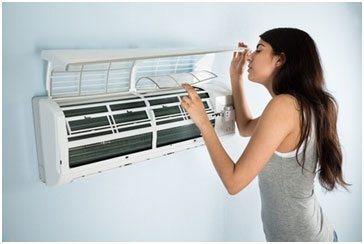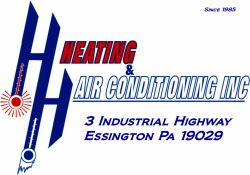
In recent years, record-breaking summer temperatures have been taking their toll nationwide, resulting in many whose air conditioners aren’t quite at their prime scrambling for service before they melt into a puddle of goo. In many of these cases, the problem can be simply or easily solved with a little detective work, most of which should take far less time than waiting on the repairman – and forking over for a repair bill.
Before you call for air conditioning repair service, see if you can solve these common AC problems:
- Poor airflow.
This is almost always due to a dirty, clogged air filter, but is occasionally due to faulty blower motor. Nasty filters are probably the number one reason for service calls. Most air filters must be changed every 3 months at a minimum, and will get quite gross in that timespan. Air filter maintenance is a cheap way to prevent the untimely death of a system struggling to breathe and function. (And how embarrassing for you to pay for a repair over an inexpensive filter you forgot to replace!) - System won’t turn on.
Make sure the thermostat batteries don’t need to be replaced, then verify power to the system at the breaker box. Ensure the blower door on the air handler (the part inside your home) is closed, then check the “on” switch on your outside unit. Sometimes they get bumped. - System cycles on and off repeatedly.
Check for a dirty filter, then check the outdoor unit for debris. Blockage by grass and other detritus must be carefully and gently removed without damaging the fins. If those are not the problem, turn it down 5-10 degrees – you could be freezing the coil, and it needs to thaw. If it’s 100 degrees outside, 68 isn’t going to happen. Grab a fan and be happy it’s 78-80 in your home. - System is not cooling properly.
“Operator error” is a frequent cause of hvac system repair– so make sure your thermostat is set properly. Again, check the filter and the outside unit for blockage. Check that the drain line is not blocked by algae/buried in the dirt. Your system will also turn off when the condensate overflow tray needs to be emptied.
When to call a pro
Some situations are not meant for amateurs. Call trusted air conditioning contractors if:
- You checked everything above and your system is still not cooling properly.
This may indicate low refrigerant, coils that need cleaning, or system maintenance, which all require skills and tools you don’t possess. - Your system went from turning on and off frequently – to not working at all.
The compressor or fan may be worn out and need replacement. - You heard a strange noise.
Brief squeaks at startup maybe normal. However, hissing can indicate leaking refrigerant, which is bad for the environment. Also bad are clanking, bubbles, hisses, and screams, which could indicated everything from loose hardware to a bent fan or blown motor. Avoid the sharp and electrifying dangers housed within your unit – call a pro.
Don’t let your air conditioning problems boil over. Contact your local H & H Heating and Air Conditioning professional today.

